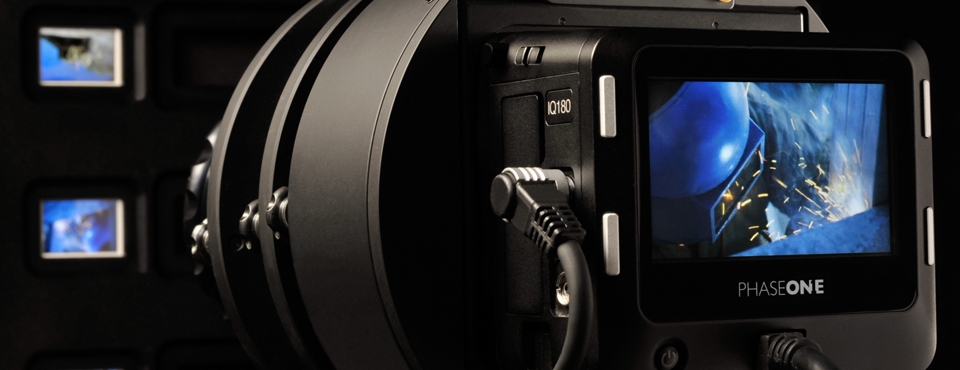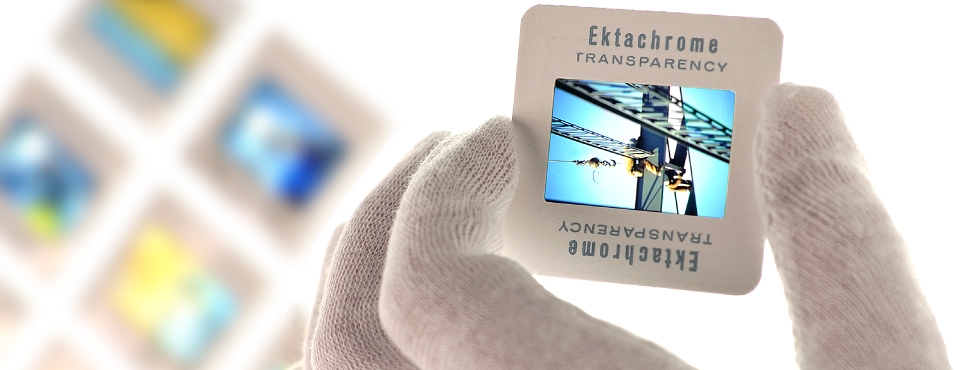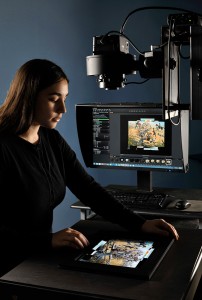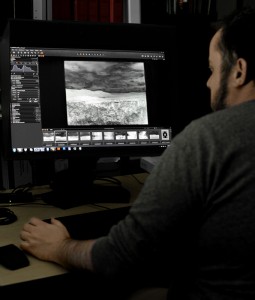No-Compromise Film and Slide Digitization
Don’t scan your transmissive materials – shoot them! Using a Phase One 80 megapixel digital back with the highest resolution of any commercially available camera system available today, Creekside Digital’s photographers provides film and slide master files of unmatched sharpness and clarity. Our film and slide digitization services are geared towards pro photographers, libraries, archives, and museums with significant film holdings, as well as creative professionals who require the highest quality images at reasonable prices. If you are used to seeing films scans from flatbed scanners or “prosumer” equipment we highly encourage you to try our film digitization services and see the difference for yourself.
We can digitize:
- Photographic films in all sizes and formats, including rolls, strips, and cut frames
- 35mm slides in cardboard, glass, and plastic mounts – even if bent
- Glass Plate Negatives and Lantern Slides
- Any proprietary, odd-sized, fragile transmissive photographic materials
The Best System to Create the Best Images Possible. Period.
Each component used by Creekside Digital to digitize transmissive materials was selected because it allows us to create the highest quality images possible from our customers’ film. Our Phase One 80 megapixel digital back features 12.5 stops of dynamic range and a maximum capture size of 10,328 x 7,760 48-bit pixels in a single shot. This back is mated to the Digital Transitions RCAM reprographic camera. Designed from the ground up as a dedicated copy camera, the precision-manufactured RCAM utilizes a helical focus system, electronic shutter control, and fixed alignment, ensuring that the focal plane remains absolutely parallel to the materials being digitized. Finally, Creekside Digital employs Schneider-Kreuznach macro lenses and a variety of extension tubes depending on the required focal length. This system meets the rigorous FADGI 4-star guidelines which define the highest level of technical quality for still image digitization of cultural heritage materials.
No Moving Parts. No Jamming. No Risk to Your Film. Ever.
Unlike “virtual drum scanners” or the batch feeders used by consumer-grade film scanners, there’s no risk of a moving transport or mechanism damaging an irreplaceable piece of film, or even of a jam wasting hours of valuable scanning time. And focus issues because of misaligned holders are a thing of the past. That’s because every single piece of film that we convert is manually placed onto a light table by a trained photographer and individually digitized using our Phase One 80 megapixel digital back. Because our camera-based system converts photographic materials far faster than any scanner can, we are able to keep the price point for this service quite reasonable. It’s not scanning – it’s high-resolution custom photography of your film and slides.
Film and Slide Scanning Options
Our typical output is 48-bit color (16 bits per RGB channel) uncompressed TIFF master files, converted to the AdobeRGB(1998) ICC profile. 35mm slides are scanned at 5,000dpi true optical resolution. Downscaled, web-friendly JPEGs, JPEG2000s, and a variety of other derivatives are also available. For an additional charge, Creekside Digital can retouch your images and digitally remove dust, scratches, and other flaws which may be present on your film.
LYRASIS Digitization Collaborative
Creekside Digital is pleased to perform preservation-quality photographic material digitization for LYRASIS, the nation’s largest non-profit membership organization for libraries and information professionals, through the LYRASIS Digitization Collaborative. This program allows institutions to take advantage of special bulk pricing negotiated on their behalf to more affordably digitize their cultural heritage materials. Creekside Digital has been a LYRASIS partner since early 2010, and we’ve delivered many terabytes of data and millions of files to LYRASIS members across the United States. For more information regarding Creekside Digital’s preservation-class photo scanning services available through the LYRASIS Digitization Collaborative, including pricing and eligibility details, please contact Hannah Rosen, LYRASIS Licensing Specialist and Digitization Program Coordinator, at (800) 999-8558 x2918, or email her at hannah.rosen@lyrasis.org.




